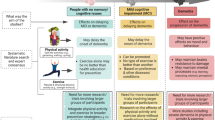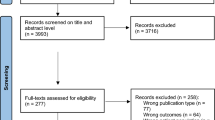Abstract
Research evidence strongly suggests that increased physical exercise may not only improve physical function in older adults but may also improve mood and slow the progression of cognitive decline. This paper describes a series of evidence-based interventions grounded in social-learning and gerontological theory that were designed to increase physical activity in persons with dementia and mild cognitive impairment. These programs, part of a collective termed the Seattle Protocols, are systematic, evidence-based approaches that are unique 1) in their focus on the importance of making regular exercise a pleasant activity, and 2) in teaching both cognitively impaired participants and their caregivers behavioral and problem-solving strategies for successfully establishing and maintaining realistic and pleasant exercise goals. While additional research is needed, initial findings from randomized controlled clinical trials are quite promising and suggest that the Seattle Protocols are both feasible and beneficial for community-residing individuals with a range of cognitive abilities and impairments.
Similar content being viewed by others
References
Abbott RD, White LR, Ross GW, Masaki KH, Curb JD, Petrovitch H. Walking and dementia in physically capable elderly men. JAMA. 2004;292(12): 1447–1453.
Andel R, Crowe M, Pedersen NL, Fratiglioni L, Johansson B, Gatz M. Physical exercise at midlife and risk of dementia three decades later: a population-based study of Swedish twins. J Gerontol A Biol Sci Med Sci. 2008; 63(1): 62–66.
Colcombe S, Kramer AF. Fitness effects on the cognitive function of older adults: A metaanalytic study. Psychol Sci. 2003; 14(2): 125–130.
Larson ER, Wang L, Bowen JD, et al. Exercise is associated with reduced risk for incident dementia among persons 65 years of age and older. Ann Intern Med. 2006;144(2): 73–81.
Laurin D, Verreault R, Lindsay J, MacPherson K, Rockwood K. Physical activity and risk of cognitive impairment and dementia in elderly persons. Arch Neurology. 2001; 58: 498–504.
Rolland Y, Pillard F, Klapouszczak A, et al. Exercise program for nursing home residents with Alzheimer’s disease: a 1-year randomized, controlled trial. J Am Geriatr Soc. 2007;55(2): 158–165.
Kwak YS, Um SY, Son TG, Kim DJ. Effect of regular exercise on senile dementia patients, Int J Sports Med. 2007 Nov 30 [Epub ahead of print].
Williams CL, Tappen RM. Effect of exercise on mood in nursing home residnets with Alzheimer’s disease. Am J Alzheimers Dis Other Demen 2007;22(5): 389–397.
Netz Y, Axelrad S, Argov E. Group physical activity for demented older adults feasibility and effectiveness. Clin Rehabil. 2007;21(11): 977–986.
Stevens J, Killeen M. A randomised controlled trial testing the impact of exercise on cognitive symptoms and disability of residents with dementia. Contemp Nurse. 2006;21(1): 32–40.
Arkin SM. Student-led exercise sessions yield significant fitness gains for Alzheimer’s patients. Am J Alzheimers Dis Other Demen. 2003; 18(3): 159–170.
Logsdon RG, McCurry SM, Teri L. A home health care approach to exercise for persons with Alzheimer’s disease. Care Manage J. 2005; 6(2): 90–97.
McCurry SM, Gibbons LE, Logsdon RG, Vitiello MV, Teri L. Nighttime Insomnia Treatment and Education for Alzheimer’s Disease: A randomized controlled trial. J Am Geriatr Soc. 2005; 53: 793–802.
Teri L, Gibbons LE, McCurry SM, et al. Exercise plus behavior management in patients with Alzheimer disease: A randomized controlled trial. JAMA. 2003; 290(15): 2015–2022.
Teri L, Logsdon RG, McCurry SM. The Seattle Protocols: Advances in behavioral treatment of Alzheimer’s disease. In: Vellas B, Fitten LJ, Winblad B, Feldman H, Grundman M, Giacobini E, eds. Research and practice in Alzheimer’s disease and cognitive decline. Vol 10. Paris: Serdi Publisher; 2005: 153–158.
Regan C, Katona C, Walker Z, Livingston G. Relationship of exercise and other risk factors to depression of Alzheimer’s disease: the LASER-AD study. Int J Geriatr Psychiatry. 2005; 20: 261–268.
ACSM. ACSM position stand: The recommended quantity and quality of exercise for developing and maintaining cardiorespiratory and muscular fitness, and flexibility in healthy adults. Med Sci Sports Exerc. 1998;30(6): 975–991.
Cress ME, Buchner DM, Prohaska T, et al. Best practices for physical activity programs and behavior counseling in older adults populations. J Aging Phys Act. 2005; 13(1): 61–74.
Teri L, Logsdon RG, McCurry SM. Nonpharmacologic treatment of behavioral disturbance in dementia. Med Clin North Am. 2002; 86: 641–656.
Teri L, McCurry SM, Buchner D, et al. Exercise and activity level in Alzheimer’s disease: A potential treatment focus. J Rehabil Res Dev. 1998;35(4): 411–419.
McCurry SM, Gibbons LE, Logsdon RG, Vitiello MV, Teri L. Training caregivers to change the sleep hygiene practices of patients with dementia: The NITE-AD Project. J Am Geriatr Soc. 2003;10: 1455–1460.
Logsdon RG, McCurry SM, Teri L. Evidence-based interventions to improve quality of life for individuals with dementia. Alzheim Care Today. 2007;8(4): 309–318.
Author information
Authors and Affiliations
Rights and permissions
About this article
Cite this article
Teri, L., Logsdon, R.G. & McCurry, S.M. Exercise interventions for dementia and cognitive impairment: The Seattle Protocols. J Nutr Health Aging 12, 391–394 (2008). https://doi.org/10.1007/BF02982672
Received:
Accepted:
Issue Date:
DOI: https://doi.org/10.1007/BF02982672




